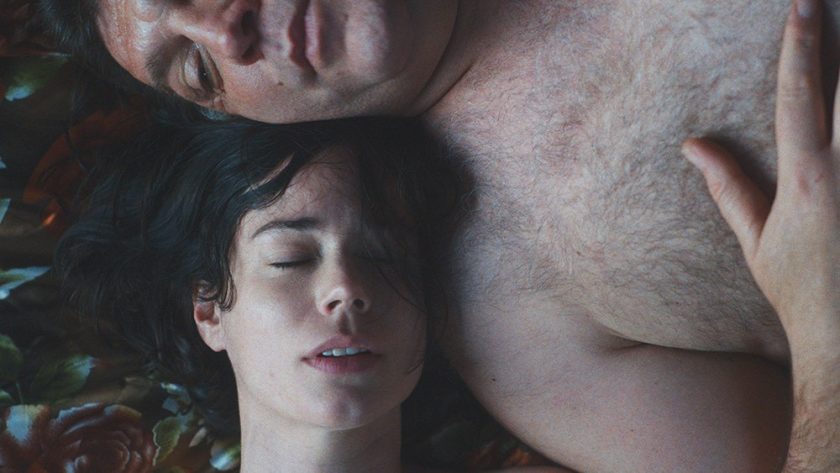Shaza Hafez reviews “Un Amor”, a melancholic portrait of psychosexual angst
This review contains spoilers for ‘Un Amor’.
‘A lot of nuns smoke and a lot of whores pray’, says an elderly woman in Un Amor (2023). To an extent, this statement encapsulates the essence of the story. After the screening, I asked director Isabel Coixet, who impeccably brought this story to life on screen (Who also happens to be the ideal candidate to do so), the following question: “Do some of your directorial choices make it harder for us to sympathize with Nat?”, to which she said, “We don’t always need to sympathize with main characters”. Raindance Film festival’s 2023 closing film, Un Amor, presents us the story of a profoundly lost woman through a morally gray psychosexual portrait.
Laia Costa astutely portrays Nat, who quits her emotionally draining job as a translator, particularly for African dialects, and relocates from the city to the countryside. Violence done to other people, particularly women, spills on to her, she clearly doesn’t know how and where to put it all down. In the beginning, she is bored with her new little life, and she starts looking for something to claw onto in order to self-destruct. A resident in the village, Andreas (played by Hovik Keuchkerian), presents her with the opportunity to do so: He offers her sexual penetration in exchange for free home repairs. She is reluctant at first, but as the weather and her mood eventually get worse, she agrees. Throughout the film, she deals with a series of aggressions, albeit in different ways, from a series of infuriating male characters: Piter, a pretentious artist, breaches her boundaries under the guise of care. He unsettlingly suggests they sleep together akin to her encounters with Andreas, citing that sex ‘clearly means nothing’ to her. Her neighbor indulges in flirtation due to boredom from his picture perfect yet stagnant family life and upstuck wife, all while her landlord’s harassment escalates.
Coixet’s approach to portraying sex is strikingly brilliant to watch, and when I asked her about it, she shrugged it off as merely portraying life. The film, adapted from Sara Mesa’s first-person perspective book, avoids traditional narration or inner monologue tropes (which tends to be recurrent in Coixet’s style of filmmaking). Instead, it employs an unconventional, experimental approach: Nat dissociates as she observes herself engaging in intercourse with Andreas from a third-person perspective. This dissociation recurs even during their first romantic kiss. Out-of-body experiences during intimacy resonate with many women, a theme masterfully handled by Coixet and her cinematographer. The not so thin line between consent and coerced consent is portrayed intricately in Nat’s first sexual interaction with Andreas. The camera focuses on her face (which represents her emotions), and his body. He completely overwhelms the frame with his presence. She tears up, and he is portrayed as some sort of feral beastly man with disturbingly carnal expressions. The next time they sleep together, she goes to him willingly, and not in exchange of any material favors, and for this scene, the camera focuses on her body (hence, the pleasure she’s deriving), and his hands (what he can offer her). For this scene, he is surprisingly gentler and more attentive to her needs. This shift in dynamics raises questions: Is she a victim or a hopeless romantic, as she repeatedly returns to him, seemingly enjoying his company? What we derive from this is an interesting exploration of sex as a social currency, and how it can impact the way people have sex. As the narrative unfolds, contrasting views on intimacy come to the fore: Emotional for Nat, versus purely physical for Andreas. She tries to infuse meaning into their interactions, she seeks out a depth of emotion that, to an extent, simply isn’t there: he attributes nothing to it, other than primal sex. “You have a face like the mountains in this village when you come” she tells Andreas, in one of her desperate attempts to push through his brute facade. “You could’ve been any other woman, I could’ve been any other man” he says dryly, when she tries to make it seem like the stars aligned for their sake. These moments, evoking laughter from a somewhat callous section of the cinema, left many, including myself, cringing at the daunting task of reaching down an empty well of a man.
Despite the emotional turmoil he puts Nat through, Andreas is shockingly the least insufferable character in the story. He stands out with his stark honesty amid the veiled intentions of others. Down-to-earth and straightforward, he says it like it is from the start. As opposed to even Nat who seems to be a relentless dreamer and self-sabotager, viewing herself as fundamentally unknowable or difficult to understand – when clearly she is merely trying to feel her snowflake emotions by latching them on to things that have nothing to do with her. The only instance where Andreas reveals his sensitive side is when Nat tries to evoke his emotions by sharing her traumatic experiences. He recounts his mother’s struggles as an Armenian immigrant, challenging Nat on her privilege and inability to handle immigrant stories, leaving us to ponder how she’d manage similar hardships. He seems to be shedding a tear, and we finally understand where his intense pragmatism comes from. She then proceeds to cry, claiming he doesn’t know her. In a flashback, we see Nat breaking down as one of her clients comforts her after recounting her own journey of abuse, which feels poignant, echoing her white European fragility.
Un Amor is riddled with metaphors. Every setting in the film is alive, a character in and of itself, and if it isn’t, Nat tries to breathe meaning into it. The mountains, whether captured from a bird’s eye view or a low angle shot, intricately weave into the narrative and Nat’s emotional journey. According to director Isabel Coixet, “Nat is her house and she is her dog”, she mirrors their decline and resurgence. She seems to be perpetually in search of something raw and real (as made evident by her pursuit of Andreas). When the landlord sexually assaults her near the end, she bites him and makes him bleed. She finally embodies the brute and carnal nature of everything around her: the house, the dog, Andreas, and the mountains. She then finally leaves the village. While making her way out, she tells Piter how much she hated his art, indicating she no longer fell victim to false pretenses of depth. However, the final scene departs from the source material: Nat breaks into interpretative liberating dance moves, which is meant to symbolize her regain of bodily autonomy and control over her life. While I acknowledge its symbolic value, this scene felt exaggerated and overdone compared to the nuanced messaging throughout the film.
When Coixet introduced Un Amor, she expressed gratitude for no longer identifying with Nat. Similarly, as the film reached its conclusion, I shared this sense of relief. While not all suffering leads to enlightenment, the film reflects how it can offer an impactful journey nonetheless.




